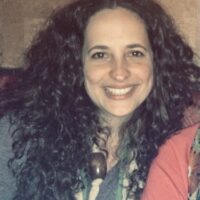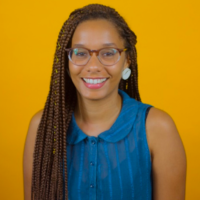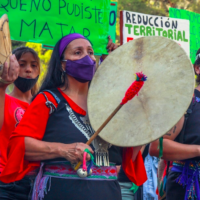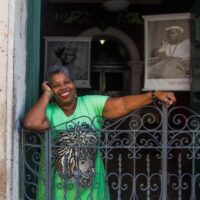For decades, the philanthropic sector underfunded and harmed social movements, especially those led by Black and Indigenous people. Funders must vigorously continue the work to undo oppressive systems that manifest explicitly or implicitly within their organizations, and that includes how funders form their grantmaking policies and practices.
In this webinar, we explored what it means to be an ally in solidarity with social movements, through grantmaking practices. We invited funders and grantees to this reflective conversation on the grantmaking tools and practices that have either built or broken trust between funders and grantees.
The panel is composed of two grantees and two funders, who spoke on their experiences from both the global south and global north perspectives.
MODERATOR
 Thilá Nascimento (Ford Foundation) I am Brazilian, from the city of São Paulo. Master’s in Social Sciences at the Ecole des Hautes Etudes en Sciences Sociales (Paris, France) and BSc in International Relations at PUC-SP (Brazil). I have professional experience in both the private and international development sectors. Human Rights defense has always orientated my activities, just as international migrations have served as an essential guiding thread.
Thilá Nascimento (Ford Foundation) I am Brazilian, from the city of São Paulo. Master’s in Social Sciences at the Ecole des Hautes Etudes en Sciences Sociales (Paris, France) and BSc in International Relations at PUC-SP (Brazil). I have professional experience in both the private and international development sectors. Human Rights defense has always orientated my activities, just as international migrations have served as an essential guiding thread.
PANELISTS
 Jovanna Garcia Soto is the Solidarity Program Officer for Latin America at Grassroots International. Grassroots International works with social movements in the Global South to create a just and sustainable world by advancing the human rights to land, water, and food through global grantmaking, building solidarity across organizations and movements, and advocacy in the US. Jovanna works to build and maintain long-term relationships with partner organizations and social movements led by Indigenous Peoples, Afro-descendants, peasants, women, and youth in Latin America. Prior to joining Grassroots’ she was working to advance environmental justice in communities of color. Jovanna is trilingual in Spanish (her mother tongue), Portuguese, and English. She is originally from Puerto Rico and was involved there with the student movement for ending the US military occupation of Vieques, and part of the environmental justice and decolonization movement in Puerto Rico. She has also spent some time working in Brazil with the riverine communities in the Amazonian region.
Jovanna Garcia Soto is the Solidarity Program Officer for Latin America at Grassroots International. Grassroots International works with social movements in the Global South to create a just and sustainable world by advancing the human rights to land, water, and food through global grantmaking, building solidarity across organizations and movements, and advocacy in the US. Jovanna works to build and maintain long-term relationships with partner organizations and social movements led by Indigenous Peoples, Afro-descendants, peasants, women, and youth in Latin America. Prior to joining Grassroots’ she was working to advance environmental justice in communities of color. Jovanna is trilingual in Spanish (her mother tongue), Portuguese, and English. She is originally from Puerto Rico and was involved there with the student movement for ending the US military occupation of Vieques, and part of the environmental justice and decolonization movement in Puerto Rico. She has also spent some time working in Brazil with the riverine communities in the Amazonian region.
 Loidymar Duprey González is a 27-year-old young Afro-Puerto Rican, graduated from a degree in Political Science with a major in Government, Law and Public Policy from the University of Puerto Rico, Río Piedras Campus. She is currently doing a Virtual Master in Gender and Public Policy at the Latin American Faculty of Social Sciences (FLACSO) in Argentina. She also works for the Puerto Rico Project with the Open Society Foundations, where she co-coordinates and accompanies young fellows between the ages of 18 and 27 in carrying out community projects that work for social justice and human rights on the island. Her commitment is to human rights and activism. Some of her topics of interest are the human right to a self-determination process for Puerto Rico, sexual and reproductive rights, and gender equality. In her spare time, she enjoys performing arts, poetry, and going to the beach.
Loidymar Duprey González is a 27-year-old young Afro-Puerto Rican, graduated from a degree in Political Science with a major in Government, Law and Public Policy from the University of Puerto Rico, Río Piedras Campus. She is currently doing a Virtual Master in Gender and Public Policy at the Latin American Faculty of Social Sciences (FLACSO) in Argentina. She also works for the Puerto Rico Project with the Open Society Foundations, where she co-coordinates and accompanies young fellows between the ages of 18 and 27 in carrying out community projects that work for social justice and human rights on the island. Her commitment is to human rights and activism. Some of her topics of interest are the human right to a self-determination process for Puerto Rico, sexual and reproductive rights, and gender equality. In her spare time, she enjoys performing arts, poetry, and going to the beach.
 María Piciñam (Centro de Educación Mapuce Norgvbamtuleayiñ) is a Mapuce woman from the current Argentine State. She is an indigenous leader committed to the life, dignity and well-being of the Mapuce people. She is also the coordinator of the Mapuce Norgvbamtuleayiñ Education Center, a self-managed cultural and educational space that seeks to recover the identity of the Mapuce people, located in the city of Neuquén, in Argentine Patagonia. Maria works as spokesperson for the Mapuche Confederation of Neuquén / Werken del Lofce Newen Mapu. She has also been responsible for the Interculturality area of the Mapuce Education Center for 19 years; She is a member of the Intercultural commission created through the first pilot experience of Intercultural Education-Kurvwigka community -Pyba Menudo Comunidad Curruhuinca.
María Piciñam (Centro de Educación Mapuce Norgvbamtuleayiñ) is a Mapuce woman from the current Argentine State. She is an indigenous leader committed to the life, dignity and well-being of the Mapuce people. She is also the coordinator of the Mapuce Norgvbamtuleayiñ Education Center, a self-managed cultural and educational space that seeks to recover the identity of the Mapuce people, located in the city of Neuquén, in Argentine Patagonia. Maria works as spokesperson for the Mapuche Confederation of Neuquén / Werken del Lofce Newen Mapu. She has also been responsible for the Interculturality area of the Mapuce Education Center for 19 years; She is a member of the Intercultural commission created through the first pilot experience of Intercultural Education-Kurvwigka community -Pyba Menudo Comunidad Curruhuinca.
 Valdecir Nascimento is a prominent women’s rights advocate and historian with a Masters in Education. She is the Founder and Executive Coordinator of Odara – Black Women’s Institute, based in Salvador, Brazil. She is the executive coordinator of the Articulation of Organizations of Brazilian Black Women (AMNB) and of the Permanent Forum for Racial Equality (FOPIR). She is also the Brazil coordinator for the Network of Afro-Latin American, Afro-Caribbean and Diaspora Women.
Valdecir Nascimento is a prominent women’s rights advocate and historian with a Masters in Education. She is the Founder and Executive Coordinator of Odara – Black Women’s Institute, based in Salvador, Brazil. She is the executive coordinator of the Articulation of Organizations of Brazilian Black Women (AMNB) and of the Permanent Forum for Racial Equality (FOPIR). She is also the Brazil coordinator for the Network of Afro-Latin American, Afro-Caribbean and Diaspora Women.
- Karina Claudio Betancourt from Open Society Foundations
- Katherine Asuncion from Grassroots International
- Thilá do Nascimento from Ford Foundation
- Christian Aurora Mendoza Galán from Acento, Acción Local, A.C.
- John Stewart from Corporate Accountability
- Shena Cavallo
There are several indigenous-led funds such as Pawanka Fund, Colorado Plateau Foundation, FIMI (Fondo Internacional de Mujeres Indigenas) and many more. You can find more information about these on IFIP’s website (International Funders for Indigenous Peoples): https://internationalfunders.org/ourwork/indigenous-led-funds-working-group/

Leave a Reply
You must be logged in to post a comment.